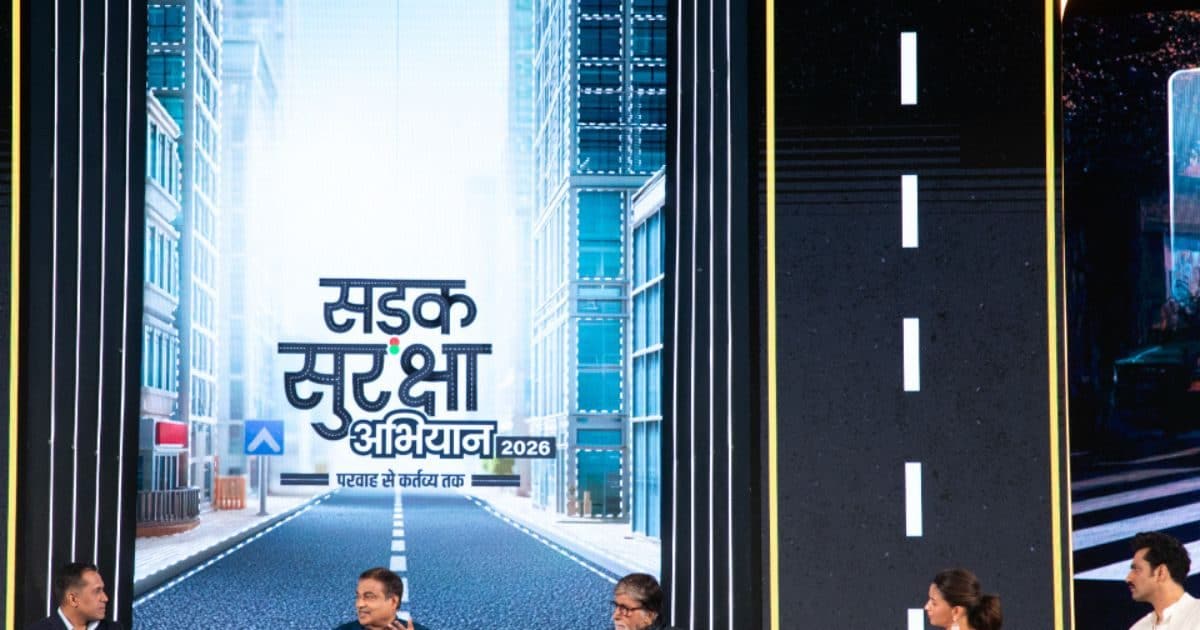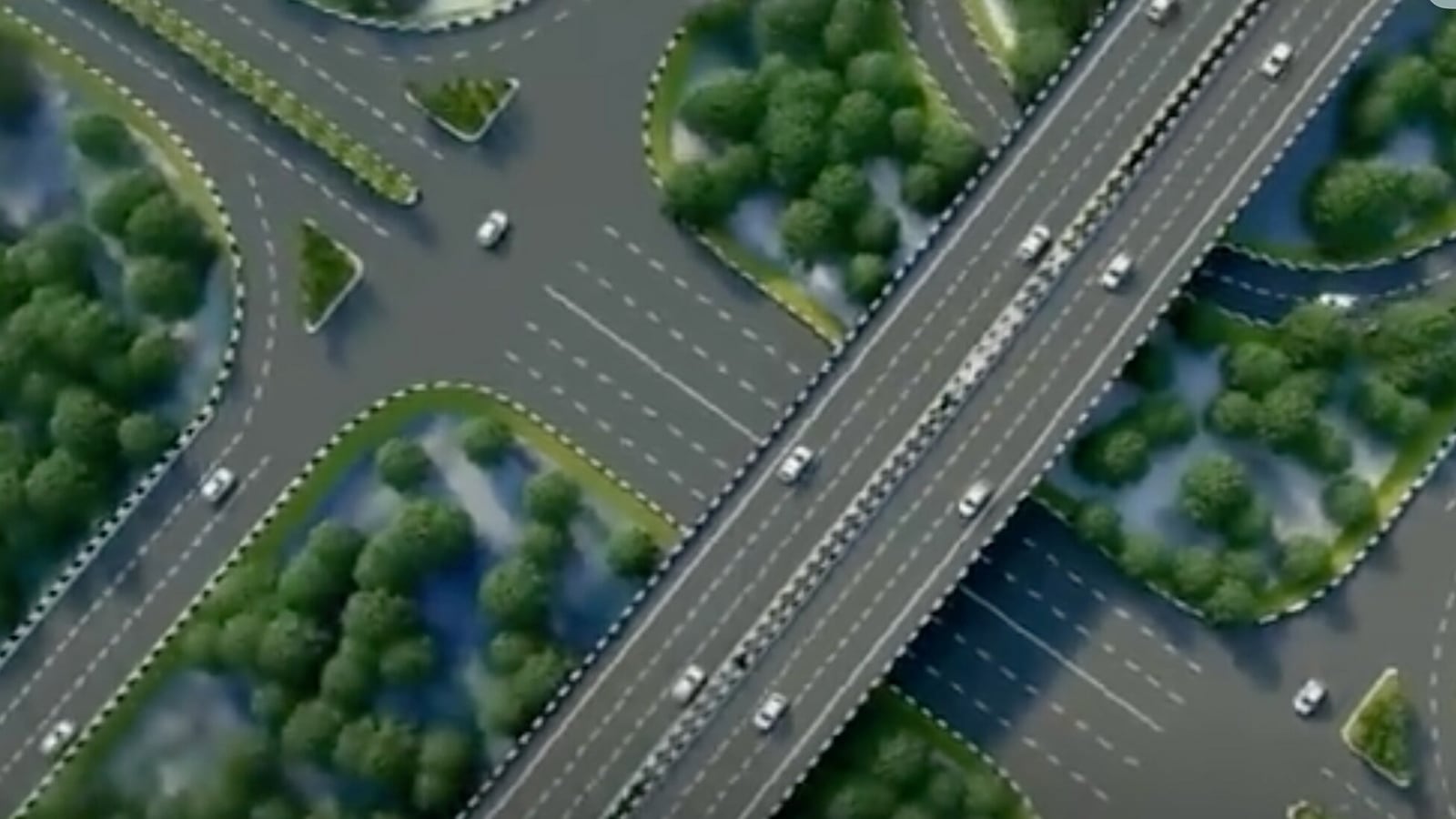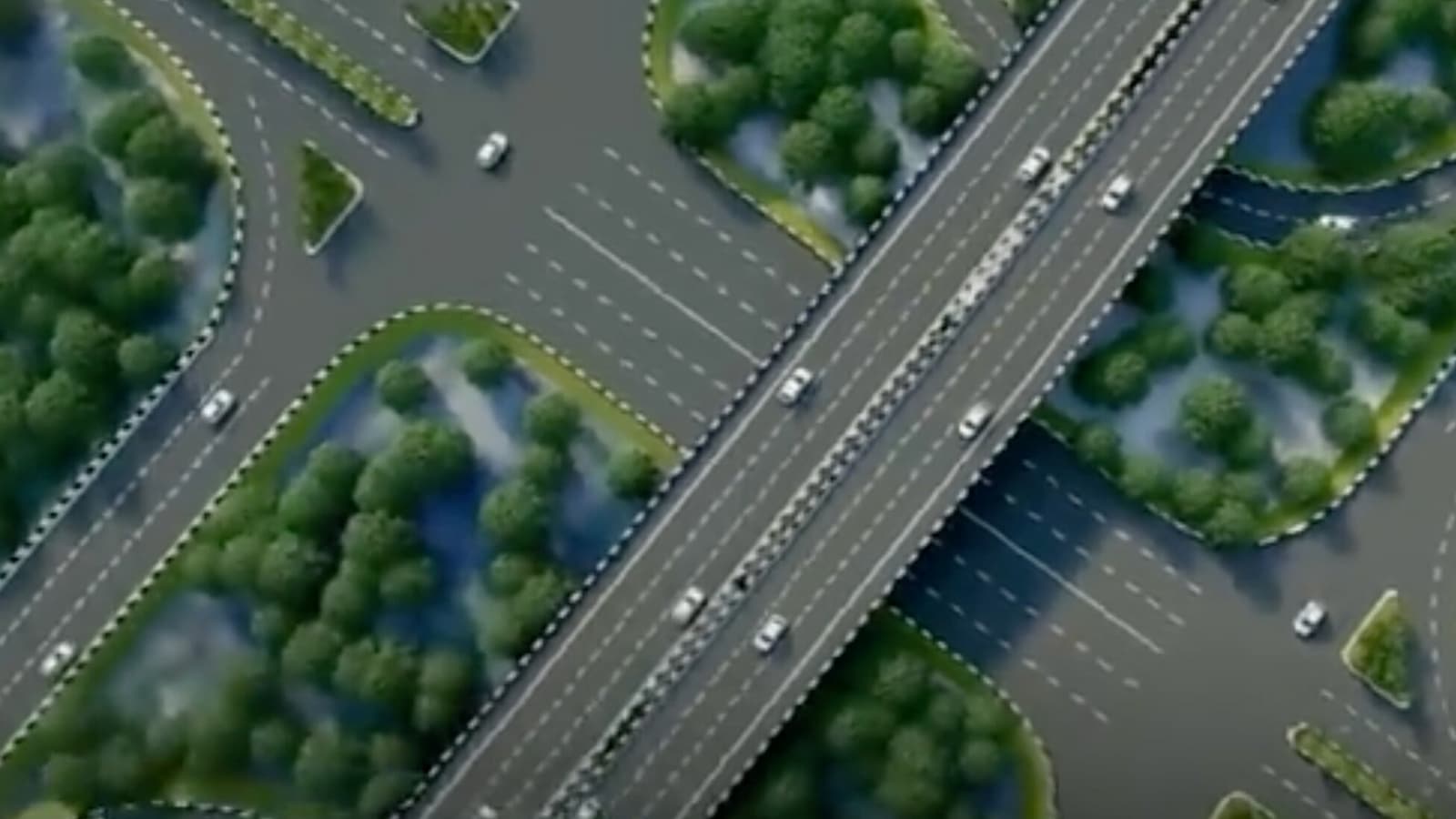New Delhi. An initiative that started in the year 2023 with a simple and sensitive thinking towards the people, has today taken the form of a strong national movement. Under the leadership of Union Minister of Road Transport and Highways Shri Nitin Gadkari, organized in collaboration with the Ministry of Road Transport and Highways (MoRTH) and National Highways Authority of India (NHAI), the Road Safety Campaign 2026 telethon reiterated its commitment to its core objective – safe roads for all. What started as a limited initiative has now reached its fourth edition and is growing stronger every year.
The theme of this year's telethon was 'From Care to Duty', which conveys the message that safety of other road users is not just an option but our duty. Road Safety Campaign 2026 is based on four main pillars — discipline (qaida), responsibility (kartavya), safety (kavach) and change (kranthi).
At the beginning of the telethon, Amitabh Bachchan said that progress is not possible without discipline and sense of duty. He stressed that road safety is not the responsibility of any one person, it requires collective responsibility. According to Shri Amitabh Bachchan, when respect for rules gets linked with everyone's life values, discipline becomes a daily habit and a sense of duty towards each other emerges as behaviour, only when these habits and values are imbibed by all, the dream of a safe and responsible India can come true.
After this, Shri Nitin Gadkari informed about the major initiatives of MoRTH and NHAI to improve road and highway safety. These include large-scale safety audits, better highway infrastructure, efficient traffic systems and strict compliance for commercial and private vehicles. Apart from this, for the safety of truck drivers, air conditioning and alert systems are being installed in the cabin to prevent sleep and laziness. Also, two standard helmets have been made mandatory with every two-wheeler, to encourage shared responsibility for safety.
Sharing her personal experience with everyone, actress Alia Bhatt said that responsible behavior on the road is not limited to one's own safety. He said that whatever we do affects other and future generations also. Love and concern for family inspires us to stay safe, making road safety a moral responsibility. Taking this idea forward, actor Vicky Kaushal stressed the importance of emotional control while driving and said that one should never try to overtake because of one's ego.
Other creative personalities also shared their important views in the telethon. Actor K.K. Menon spoke on right thinking and awareness, while National Award winning lyricist Swanand Kirkire said that the next generation unknowingly learns from our behavior on the road. Composer and singer Shankar Mahadevan, who has composed the Road Safety Campaign (SSA) anthem in 22 languages, highlighted the emotional power of music, which takes the message of road safety to the heart.
Giving a new dimension to creativity, The Anirudh Verma Collective presented the message of road safety through music, which awakened the feeling of compassion, discipline and joint responsibility among all. Their musical performance transformed the values of the campaign into a memorable experience.
The telethon was also attended by influential personalities from various fields who gave their active support to this initiative. Ravin Mirchandani, Chairperson, Adore Powertron, spoke on the growing role of technology and AI-based solutions in road safety and emphasized how data-driven, intelligent systems can support continuous communication to predict risks and influence behaviour.
Dr. Ilya Jafar, Chief of Programs, Save Life Foundation, highlighted the need for proactive mitigation options and highlighted the organization's Zero-Fatality Solutions, which are now being implemented in 100 high-risk highways (Zero-Fatality Corridors) and districts (Zero-Fatality Districts) across the country in collaboration with MoRTH. Alex Kuruvilla, Trustee of Save Life Foundation, stressed the need for continuous awareness and effective communication for responsible road behaviour. Content creator Chatori Rajni made the message of road safety more humane and effective by sharing her personal pain.
An emotional and inspiring part of the telethon was 'Raah-Veer Samman', which honored the common citizens who displayed extraordinary courage on the roads of the country during the accident. These road warriors came forward at the time of accidents and helped the injured and many times saved the lives of others without caring for their own lives. His contribution became a living example of duty, humanity and sensitivity.
At the conclusion of the Road Safety Campaign 2026 telethon, the message was clear that safe roads are not made just by rules and systems, but by people who make discipline a habit, care and take responsibility. Only when care becomes duty and awareness turns into behavior, the journey towards a safe and responsible India begins.
Join this campaign and take up the responsibility of making roads safe for all.




